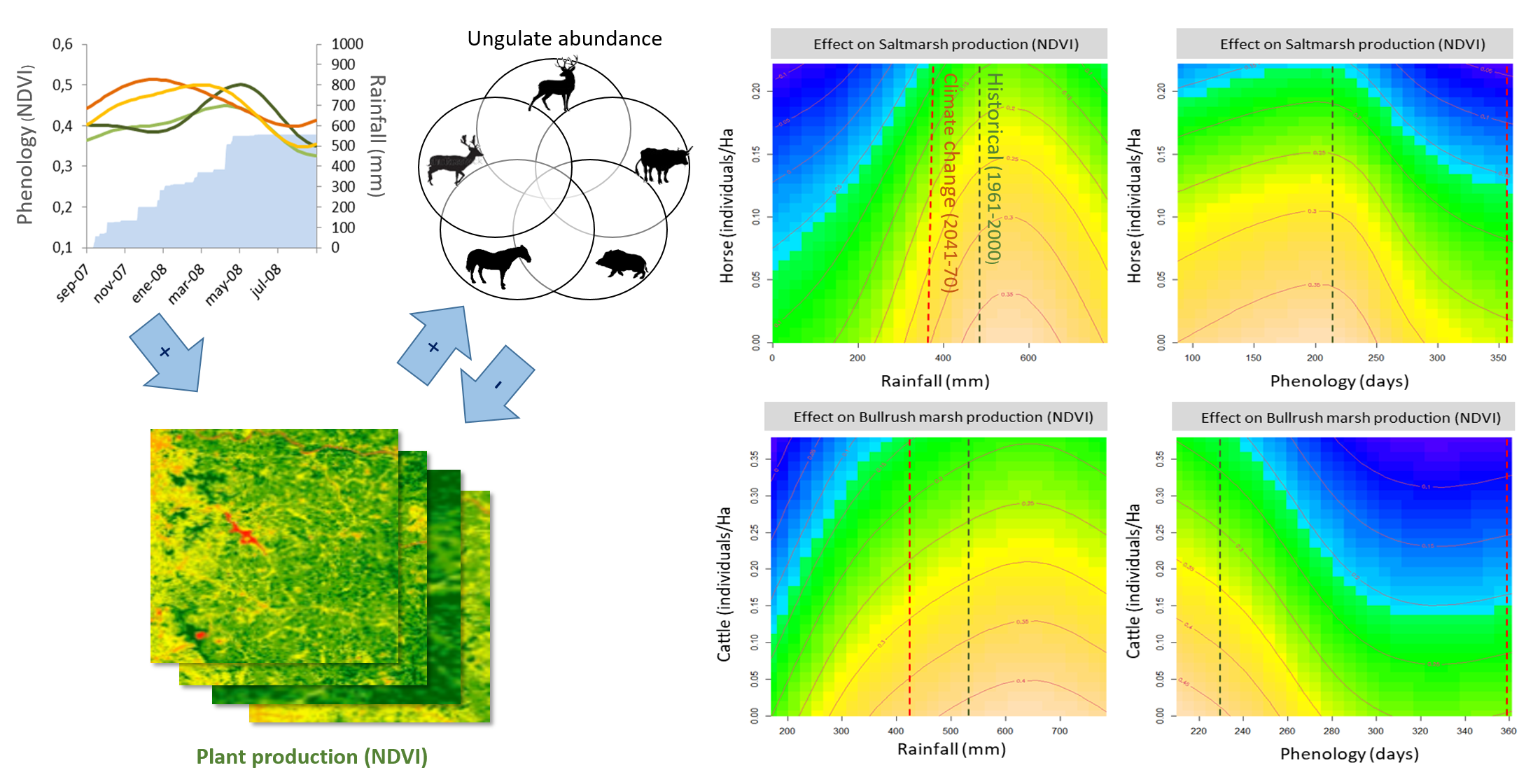
In environments with high climatic variability such as the Mediterranean region, plant primary production shows strong seasonal and inter-annual fluctuations, which both drive and interplay with herbivore grazing. Knowledge on the responses of different vegetation types to the variability in both rainfall and grazing pressure by wild and domestic ungulates is a necessary starting point for the sustainable management of these ecosystems.
We combined a 15 year series of remote sensing data on plant production (NDVI) with meteorological (daily precipitation data) and ungulate abundance (annual counts of four species of wild and domestic ungulates: red deer, fallow deer, cattle, and horses) in an iconic protected area (the Doñana National Park, SW Spain) to estimate the impact of intra- and inter-annual variation in rainfall and herbivore pressure on primary production, for each of four main vegetation types.
Our results showed that, although the density of domestic ungulates shows a linear, negative effect on the primary production of three of the four vegetation types, differences in primary production and phenology among vegetation types increase ecosystem resilience to both climatological variability and grazing pressure. Such resilience may be reduced under the conditions predicted by climate change models, if the reduction in rainfall levels is not accompanied by reductions in the densities of domestic ungulates - potentially leading to no-return degradation levels. New management strategies taking advantage of habitat heterogeneity and phenological alternation, more flexible stocking rates, and the redistribution of management units should be considered to mitigate these effects.
This work, belonging to the PhD Project of Juan Miguel Giralt (the leadind author), just got published in the paper: Complementary Differences in Primary Production and Phenology among Vegetation Types Increase Ecosystem Resilience to Climate Change and Grazing Pressure in an Iconic Mediterranean Ecosystem
